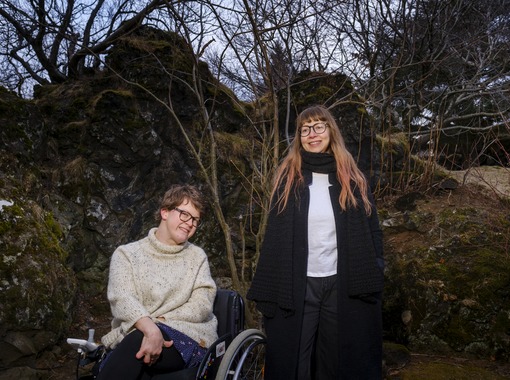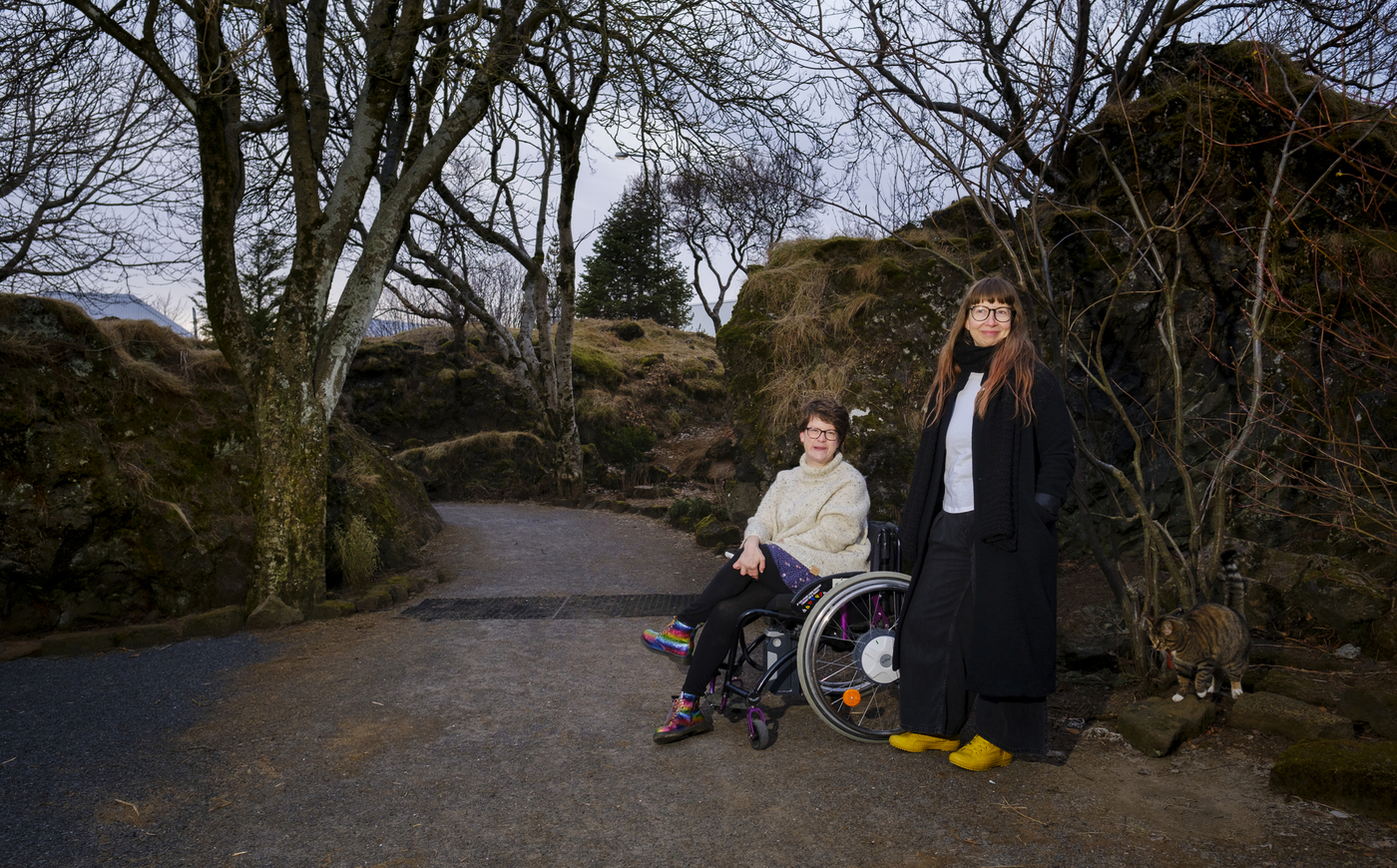Microaggression, indirect and subtle discrimination or prejudice - mainly aimed at marginalised groups, has received considerable attention recently. "This is often isolated incidents that seems trivial, but when people in marginalised positions experience them, even many times per day, their impact and consequences are severe," explains Ásta Jóhannsdóttir, assistant professor at the University of Iceland School of Education. She is currently working on a study on this phenomenon with Embla Guðrúnar Ágústsdóttir, master student in social sciences at the University of Akureyri, and Andrea Sigrún Hjálmsdóttir, assistant professor at the same University.
The project focuses on the effect of microagression on the expression of sexuality among disabled people. Sexuality refers to how people experience being a sexual being and includes the sex, gender, intersex and sexual orientation. "The aim of this project is to study experiences among people with disabilities as sexual beings, their possibilities in expressing their sexuality, and the feeling of shame in connection with such expression. Furthermore, we want to explore how people with disabilities experience their bodies as sexual, and the microaggressions they face," adds Embla.
The project is entitled: The shame of pleasure in the lives of people with disabilities; the impact of microagression on gendered identity and the expression of sexuality, (Unaðsskömm í lífi fatlaðs fólks; Áhrif öráreitni á kynjasjálfsmynd og tjáningu kynverundar) It is based on former research on the impact of microagression and ableism on young people with disabilities. Embla and Ásta conducted that research with Freyja Haraldsdóttir. They also build on Ásta's former studies on the effect of shame on the bodies and sexuality among young people. "Valgerður Bláklukka Fjölnisdóttir, Embla's wife, came up with the new Icelandic word "unaðskömm" (pleasure shame) in connection with the shame that often accompanies the sexual expression of people with disabilities," adds Ásta.
The aim of this project, conducted by Embla Guðrúnar Ágústsdóttir and Ásta Jóhannsdóttir, is to study experiences among people with disabilities as sexual beings, their possibilities in expressing their sexuality, and the feeling of shame in connection with such expression. It, furthermore, explores how people with disabilities experience their bodies as sexual, and the microaggressions they face. image/Kristinn Ingvarsson.

Disability and sexuality rarely studied in Iceland
Disability and sexuality have not been much studied in Iceland according to Ásta and Embla, and the same applies to the impact of microagression on the sexuality of people with disabilities. To address this they use three research methods in their project: focus group interviews, individual interviews and case studies. "The experience of participants of microagression in the focus groups is discussed in connection with their gendered existence. We also discuss the access of disabled people to romance in general and the expression of sexuality. Similar subjects are discussed in the personal interviews," explains Embla.
Interview research is, however, not convenient for all groups, and to include those with special accessibility needs we also apply case studies. "This means journal writing where participants keep a diary for a certain period of time about their experience of microagression and expression of their sexuality. Topic ideas are provided, but participants are free to write about what they want. This method provides information on the participants' experience over a longer period," says Embla who gathers and analyses data in the project under Ásta's supervision.
Ásta points out that using journals this way is a novel research method. She has used this form previously with great success and points out that when talking about sensitive things it can be beneficial for people to be at home writing on their computer instead of being in the same room as the researcher.
The study is in its early stages but the preliminary results are, according to Embla, in accordance with existing international research. "There is a lot of microagression that people with disabilities have to react to constantly. One of the manifestations of microagression is the idea that people with disability are sexless or remain children forever. The message that participants should be grateful to have a partner and have little room to make demands on them is one of the messages that appear in our results," says Embla and Ásta adds that they are planning to write several scientific articles based on the study and the results will be published both in Iceland and internationally.
Ásta and Embla agree on the societal and scientific value of their research. "Current studies on microaggression and the sexuality of people with disabilities are few, and thus it is vital to shed light on their experiences. The experience of marginal groups is often coloured by microaggression that is not very visible and regularly trivialised. International studies have shown that microaggression is a dominant factor in the daily lives of people with disabilities and thus vital to examine further," concludes Embla.




